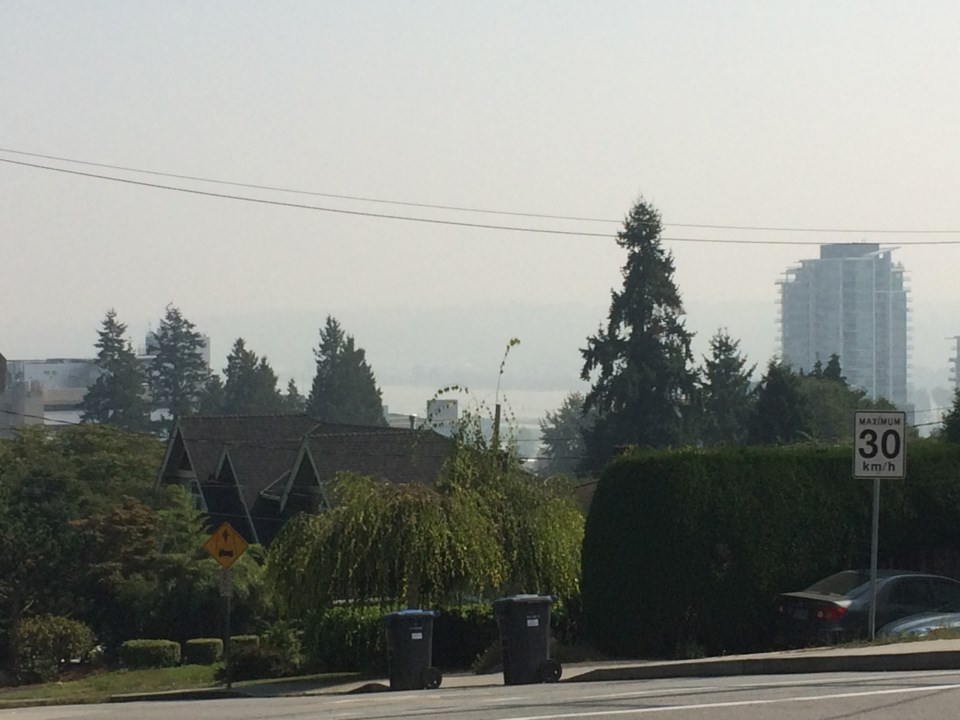New Westminster’s air has taken a decided turn for the worse.
As of midday Friday, New Westminster’s health index was sitting at a 10, the high-risk zone – and it shows no signs of immediate improvement.
Metro Vancouver is continuing its air quality advisory for the whole region due to high concentrations of fine particulate matter. Wildfire smoke from Washington and Oregon has moved north and is forecast to impact air quality throughout the weekend as a large mass of smoke moves through, Metro Vancouver says.
You can get up-to-date air information online at the region’s airmap.
Smoke concentrations may vary across the region and over time as winds and wildfire behaviour change, but residents are advised to use caution in the outdoors.
Air exposure is a particular concern for anyone with underlying conditions such as lung or heart disease, chronic obstructive pulmonary disease (including bronchitis and emphysema), as well as asthma or diabetes. Anyone with a respiratory infection, pregnant women, infants, children, outdoor workers and older adults may also be at higher risk.
The region has offered up some tips for reducing your personal health risk:
- Stay cool and drink plenty of water.
- Use symptom management medications, such as inhalers, as needed.
- Continue to manage acute infections or pre-existing chronic medical conditions; if symptoms continue to be bothersome, seek medical attention.
- Stay in cool, air-conditioned environments, especially during afternoon and evening when ozone levels are highest.
- Reduce indoor sources of pollution (such as smoking and vacuuming) and run an air cleaner. Some room air cleaners, such as those with HEPA filters, can help reduce indoor particulate levels.
- Consider taking shelter in air-conditioned buildings that have large indoor volumes and limited entry of outdoor air, but be mindful that space may be limited due to physical distancing guidelines for COVID-19.
- If you are experiencing symptoms such as chest discomfort, shortness of breath, coughing or wheezing, seek prompt medical attention. Call 9-1-1 in the case of an emergency.



